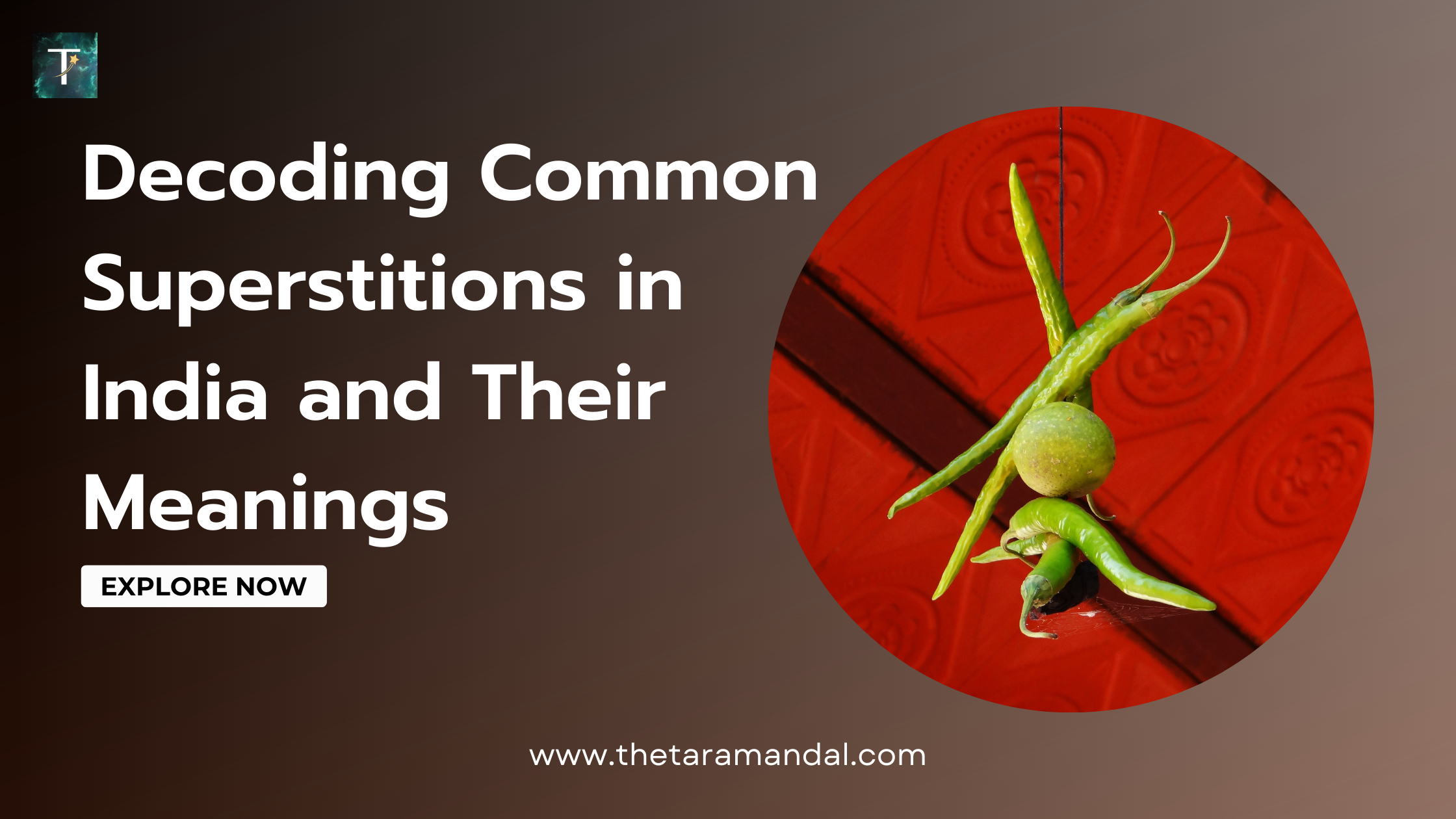on 1 year ago
Decoding Common Superstitions in India and Their Meanings
Decoding Common Superstitions in India and Their Meanings
India is a land rich in culture, tradition, and beliefs. Among these, superstitions play a significant role in everyday life. Many people follow these beliefs without questioning their origins or meanings. In this blog, we will explore some common superstitions in India, their meanings, and why they continue to influence our lives today.
1. Black Cat Crossing Your Path
One of the most well-known superstitions is that if a black cat crosses your path, it brings bad luck. This belief is prevalent not only in India but also in many cultures worldwide.
- Meaning: The superstition suggests that encountering a black cat can lead to misfortune or obstacles. This belief may stem from historical associations of black cats with witchcraft and evil spirits.
2. Hanging Lemon and Chilies
Many people hang a string of lemon and chilies outside their homes or businesses to ward off evil spirits.
- Meaning: This practice is believed to keep negative energies away and ensure good luck, especially in business.
3. Breaking a Mirror
In Indian culture, breaking a mirror is often seen as an omen of bad luck for seven years.
- Meaning: Mirrors are thought to reflect not just appearances but also one's soul. Breaking one disrupts harmony and can lead to negative consequences.
4. Sweeping at Night
It is commonly believed that sweeping the house after sunset can drive away wealth and prosperity.
- Meaning: This superstition reflects the importance placed on wealth and abundance in Indian culture. Sweeping at night may be seen as inviting misfortune into the home.
5. The Evil Eye (Nazar)
The concept of the evil eye, known as "nazar" in Hindi, refers to the belief that certain individuals can cause harm or misfortune through envy or malevolent looks.
- Meaning: To ward off the evil eye, people often use amulets, red threads tied around wrists or necks, or specific rituals like applying kohl on children.
6. Offering Water to the Sun
Hindus often offer water to the Sun God during sunrise as a form of respect and gratitude.
- Meaning: This act symbolizes devotion and reverence for nature, believed to bring health and good fortune to one’s household.
7. Crows as Messengers
Crows are often seen as messengers from the spiritual realm in Indian culture. If a crow caws near someone, it may indicate news or changes ahead.
- Meaning: Depending on the context, it can signify both good and bad news. Some believe that crows carry messages from deceased relatives or ancestors.
8. Avoiding Peepal Trees at Night
It is advised not to go near Peepal trees at night due to beliefs about ghosts inhabiting them.
- Meaning: The Peepal tree is considered sacred; hence, being near it at night is thought to attract negative energies or spirits.
9. The Number 13
The number 13 is often considered unlucky in many cultures worldwide, including India.
- Meaning: Many people tend to avoid planning important events on the 13th day of any month due to its perceived negative connotations.
10. Bathing After Funerals
Attendees of funerals are expected to bathe afterward, stemming from health precautions against infections.
- Meaning: This practice reflects cultural beliefs about cleanliness and purity after mourning rituals.
Conclusion
Superstitions in India are deeply woven into the fabric of society, influencing daily life, rituals, and cultural practices. While some may view these beliefs as mere folklore, they often carry profound meanings that reflect societal values and historical contexts. Understanding these superstitions provides insight into Indian culture's rich tapestry and highlights how traditions shape perceptions of luck, spirituality, and morality.
If you want personalized astrological insights, talk to an expert astrologer at Taramandal—download the Taramandal astrology app now!

